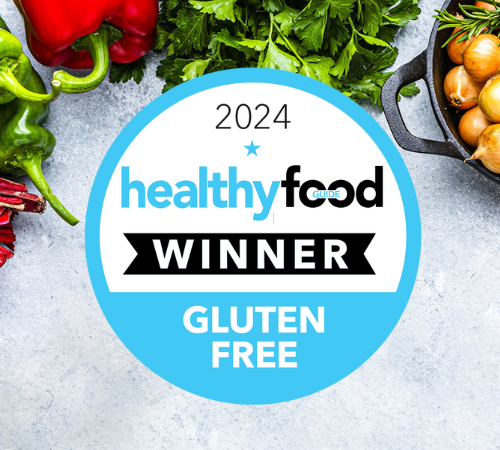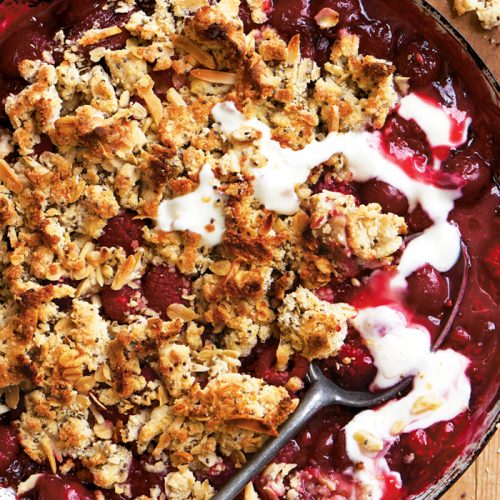
Having biennial check-ups with the optometrist is always a good idea, but there are a few other factors to take into consideration when it comes to supporting our eye health.
Too much screen time, age-related changes or just making sure our children’s eyes develop properly may lead us to the pharmacy shelves. While there’s no standard formula for supplements targeted at helping our eyesight, there are common ingredients found in most of them.
Lutein and zeaxanthin
Most vision support supplements contain lutein and/or zeaxanthin which are carotenoids. These nutrients give a green or yellow colour to fruit and vegetables. The claims for supporting your eyes during screen-time come from the discovery that the yellow pigment in lutein and zeaxanthin helps to protect the eye against damage from blue light. Blue light is emitted by computer, smartphone and tablet screens.
Research has shown that an intake of around 6mg lutein a day has been related to a reduced risk of a common eye disease, age-related macular degeneration, and if dietary intake is low then a supplement of 10mg lutein and 2mg zeaxanthin daily may help reduce the progression of age-related macular degeneration.
Antioxidant vitamins C and E
Vitamins C and E are strong antioxidants, protecting the body from harmful oxidative damage. Areas, like the eye, that use a lot of oxygen are at particularly high risk of oxidative damage. In 2001 the Age-Related Eye Disease Study (AREDS) found that supplements including 500mg vitamin C and 400IU vitamin E daily helped delay the progression of age-related macular degeneration. The use of vitamin C and E supplements in the treatment of cataracts, or to delay their development, has also been investigated but results have been conflicting.
Omega-3
Long-chain omega-3 fatty acids have a role in reducing inflammation. Inflammation in the eye can cause problems such as dry eye syndrome. A 2015 study found that EPA and DHA supplements helped alleviate dry eye symptoms in people who used computers. And a 2017 systematic review found that omega-3 supplements may be considered as an effective alternative to eye drops in some people with dry eye syndrome. The long-chain omega-3 DHA is found in the retina, and studies during pregnancy have shown its importance in the development of normal eyesight in fetuses.
Anthocyanins
Anthocyanins, which give the red-purple pigment found in berries and are strong antioxidants, again protect the eye from oxidative damage. With supplements you can often find anthocyanins listed as blackcurrant or bilberry extract or powder. only a small number of studies have investigated the role of anthocyanins in eye health which means data are limited on their effectiveness, dose and safety.
However, research suggests they may improve blood flow in the eyes and stabilise visual field defects of people with glaucoma, and pressure inside the eye may be improved with 30mg-50mg daily.
What to watch out for
During the ARED study of a supplement to prevent the deterioration of age-related macular degeneration, researchers found increased rates of lung cancer in current and former smokers who took the first supplement trialled that contained beta-carotene.
The second trial (AREDS2) replaced the beta-carotene with lutein and zeaxanthin, getting better results which were safe for all. So, choose a supplement without beta carotene if you are or have been a smoker.
If I don’t want a supplement?
Food sources of lutein are green leafy vegetables, broccoli, corn, eggs and avocado. one cup of cooked spinach contains around 29mg lutein and zeaxanthin. Fruits and vegetables contain antioxidants including vitamin C. Vitamin e is a fat-soluble vitamin and is found in nuts and oils. oily fish are the best source of the long-chain omega-3s, epa and dHa, needed for eye health.
Choosing plenty of green, yellow, red and purple fruits and vegetables will provide lutein, zeaxanthin, anthocyanins and other antioxidant nutrients.
Article sources and references
- Abdel-Aal ES et al. 2013. Dietary sources of lutein and zeaxanthin carotenoids and their role in eye health. Nutrients 5:1169-85https://www.ncbi.nlm.nih.gov/pubmed/23571649
- Age-Related Eye Disease Study Research Group. 2001. A randomized, placebocontrolled, clinical trial of high-dose supplementation with vitamins C and E, beta carotene, and zinc for age-related macular degeneration and vision loss: AREDS report no. 8. Archives ofhttps://www.ncbi.nlm.nih.gov/pubmed/11594942
- Braakhuis AJ et al. 2019. Nutritional strategies to prevent lens cataract: Current status and future strategies. Nutrients 11:1186https://www.mdpi.com/2072-6643/11/5/1186/xml
- Bhargava R et al. 2015. Oral omega-3 fatty acids treatment in computer vision syndrome related dry eye. Contact Lens and Anterior Eye 38:206-10https://www.ncbi.nlm.nih.gov/pubmed/25697893
- Evans JR & Lawrenson JG.2014. A review of the evidence for dietary interventions in preventing or slowing the progression of age-related macular degeneration. Ophthalmic and Physiological Optics 34. 390-96https://www.ncbi.nlm.nih.gov/pubmed/25856365
- Faulkner WJ. 2017. The role of omega-3 essential fatty acids in dry eye disease. International Journal of Clinical and Experimental Opthalmology 1:55-9https://www.cincinnatieye.com/wp-content/uploads/2018/02/The-Role-of-Omega-3-Essential-Fatty-Acids-in-Dry-Eye-Disease.pdf
- Khoo HE et al. 2019. Nutrients for prevention of macular degeneration and eye-related diseases. Antioxidants 8:85 Molina-Leyva I et al. 2017. Efficacy of nutritional supplementation with omega-3 and omega-6 fatty acids in dry eye syndrome: a systematic review of randomized clinical trials. Acta Ophthalmologica 95:e677-85https://www.ncbi.nlm.nih.gov/pmc/articles/PMC6523787/
- National Institute of Health. 2013. Questions and Answers about AREDS2 Accessed August 2019https://nei.nih.gov/research/clinical-trials/age-related-eye-disease-study-2-areds2/media-questions-and-answers-about-areds2
- Stringham JM et al. 2019. Lutein across the lifespan: From childhood cognitive performance to the aging eye and brain. Current Developments in Nutrition 3:nzz066https://academic.oup.com/cdn/article/3/7/nzz066/5511268
- Swanson D et al. 2012. Omega-3 fatty acids EPA and DHA: Health benefits throughout life. Advances in Nutrition 3:1-7https://academic.oup.com/advances/article/3/1/1/4557081
www.healthyfood.com










